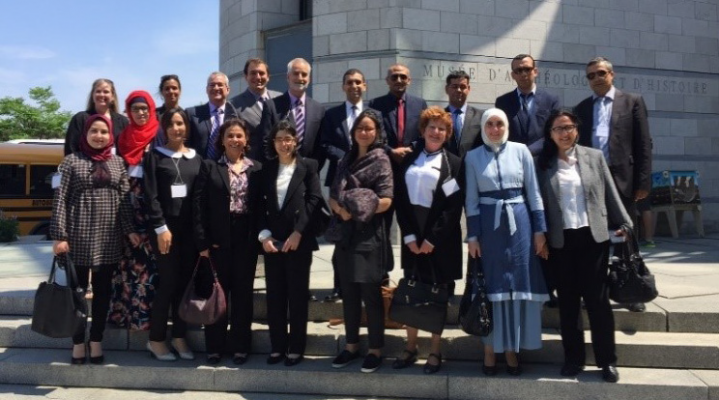
As part of the projects addressing the movable collateral reforms in the MENA region, the International Finance Corporation (IFC) organised a study visit to Montreal in June 2018. The aim of this visit was to share best practices on secure transactions in Canada and to inquire about the Register of Personal and Movable Real Rights (RPMRR).
To that end, several meetings were held within the Directorate of Registers and Certification (DRC) of the Quebec Ministry of Justice, and were attended by the Moroccan, Tunisian and Lebanese delegations in charge of implementing these reform projects in their respective countries. In addition, a number of sessions were dedicated to deepening the organisational and legal concepts in relation to the Register of Personal and Movable Real Rights and to demonstrating the functions of this register. Advanced workshops were also held to explore the technical aspects related to the registry's IT solution. A session was also devoted to the Doing Business report in order to highlight the impact of implementing the personal property security registry on the "Getting Credit" indicator.
The Quebec Personal Property Security Registry is a successful experience with a significant impact on the economy of this province. For companies, the registry provides better access to credits, at a lower cost and on more favourable terms. For creditors, it builds trust among them and reduces the risk in the event of non-payment. For the province, it promotes economic growth and facilitates the registration and publication of rights through an efficient computerized registry. This study visit was thus a great opportunity for the Moroccan delegation to inquire about the Canadian experience in this area and to draw lessons that are relevant to the creation of a national movable collateral registry, which forms part of the reform initiated in 2013. The Moroccan delegation included representatives from the Ministry of Economy and Finance, the Ministry of Justice, the General Secretariat of the Government and CNEA’s secretariat.



